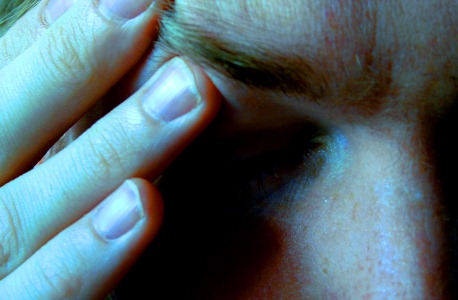 For the better part of a decade I suffered from a chronic mystery illness that was attacking me from the inside out. Countless doctors and specialists couldn’t diagnose me, couldn’t give me a name for what was happening. They told me it was all in my head — that I could pull myself out of it if I just tried harder.
For the better part of a decade I suffered from a chronic mystery illness that was attacking me from the inside out. Countless doctors and specialists couldn’t diagnose me, couldn’t give me a name for what was happening. They told me it was all in my head — that I could pull myself out of it if I just tried harder.
After eight years of sickness, a doctor handed me a slip of paper. On the paper was the name of the disease I had been fighting; the disease that had been fighting me.
I wept with joy.
I had a name. The symptoms were real. I did have a medical condition. I was not doing it to myself.
Because of the name, I found out I was not alone; there were thousands of other people dealing with the very same condition. Because of the name, I discovered community, support, resources, and treatment. Because of the name, I recovered.
Because of the name, fatigue and pain are no longer a way of life for me.
Which is why I am giving a name to a spiritual condition that is even more real and more dangerous than the disease that robbed me of my physical health for many years:
Post-Traumatic Church Syndrome.
PTCS presents as a severe, negative — almost allergic — reaction to inflexible doctrine, outright abuse of spiritual power, dogma and (often) praise bands and preachers. Internal symptoms include but are not limited to: withdrawal from all things religious, failure to believe in anything, depression, anxiety, anger, grief, loss of identity, despair, moral confusion, and, most notably, the loss of desire/inability to darken the door of a place of worship.
The physical symptoms of PTCS — which may or may not be present — include: cold sweats, hives, nausea, vomiting, sexual dysfunction, sleep disturbance, rashes, heart palpitations, increased blood pressure — oh, to heck with it. The symptoms are as varied as the people who suffer them.
There are degrees of PTCS — maybe you can still walk into a church, maybe you can’t, maybe you take the long way on the highway to avoid the sight of a steeple, maybe you’re even standing in the pulpit. But the one thing we all have in common is that we crash into religion when we go looking for God.
And the crashing has left us with spiritual whiplash, broken bones, bruises, welts and lacerations. It has left us feeling alone and scared and suffering. It has left us with a boatload of internal and external symptoms the persons of spiritual authority tell us are all in our heads and would go away if we just had more faith.
Don’t believe them.
Post-Traumatic Church Syndrome is not in your head, and you are not alone.
When I tackled my own case of PTCS and blogged about it (http://thirtybythirty.com/), I received story after story — in person and via email and snail mail—from people who were suffering from PTCS. Our stories may be different, but the result is the same: we yearn for God without being bound by dogma and subject to spiritual abuse.
Though I wish I could give you an answer of how to recover from PTCS in 800 words or less, I can’t. (It took me a year and a crazy journey through thirty religions to recover from my own case of PTCS.) Each journey back to spiritual health is as unique as the person taking it.
But what I can do is hand you this virtual slip of paper stating the condition you’ve been fighting — the condition that’s been fighting you. I can tell you there are thousands, maybe even millions of us. I can tell you that I recovered, that healing is available, that God will meet you wherever you are or aren’t.
But most of all, I can tell you a name. Sometimes a name is halfway to healing.
Reba Riley is the author of Post-Traumatic Church Syndrome: A Humorous Memoir of Healing, Hope, and 30 Religions Before 30 (Chalice Press, Fall/Winter 2014). She may be reached for comment at rebecca@thirtybythirty.com. Join the PTCS group on Facebook:https://www.facebook.com/groups/PTCSgroup/







Sorry, reageren kan op dit moment niet.